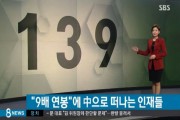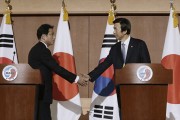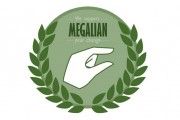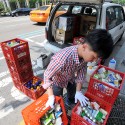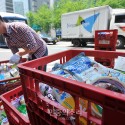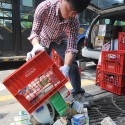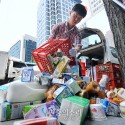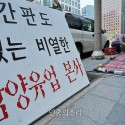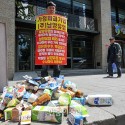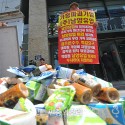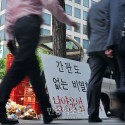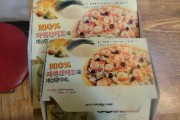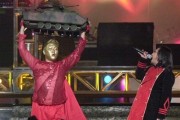Namyang Dairy, one of the two major suppliers of dairy products to the Korean market, has come under fire for the latest episode in corporate malfeasance. A voice recording [see below] of a conversation showing clear verbal abuse of a shop owner by a company representative has gone viral, attracting widespread condemnation of a corporation known for its shady business tactics.
In this recording, the company rep, a man in his mid-thirties, uses expletives against an older shop owner who is reluctant to accept products he never ordered from the company. It is an illustration of a tactic commonly used by large suppliers, known as ‘mireonaegi’ – a practice of forcing small retailers to accept excess merchandise with the full knowledge that they would not be able to sell them before expiration dates.
As a result of the scandal, the company rep has been fired by the company, and Namyang executives have been forced to publicly apologise for its business strategy. It has also promised to set up a special fund to help small shop owners who carry the company’s products.
Namyang, however, has in fact received two warnings from the Fair Trade Commission in the past for engaging in similar behavior. An additional video recording has surfaced, revealing that company reps may also be demanding kickbacks from small businesses.
In addition, the fired rep at the center of the scandal is alleged to have tried to win more business for the company by calling on at least one occasion a new mother and telling her that the baby formula manufactured by Namyang’s main competitor was tainted with harmful substances.
Namyang’s history of controversy is cited as proof of the company’s misconceived philosophy. The company’s CEO and largest shareholder, Hong Won-shik, is notorious for telling employees in training that ‘market share no. 1 is not possible if one abides by the law.’
In 1999, Hong paid an official at the Department of Defense 15,000,000 KRW (approx. 15,000 USD) to secure his son exemption from mandatory military service. In 2003, Hong was charged and found guilty of creating a slush fund with illegal kickbacks obtained from construction firms building company structures. The verdict forced him to give up his management role, though as the single largest shareholder he continued to maintain significant power over business strategy.
In a pattern of unethical behavior, Namyang was found in 2009 to have exported to Vietnam baby formula suspected of containing melamine. In 2010, the company had to deal with yet more negative publicity for paying obstetricians in return for using only its products at hospitals. The following year there surfaced a voice recording implying that the company officials had tried to bribe the Food and Drug Administration.
Yet Namyang has been able to maintain its standing as the no. 1 dairy company in South Korea for a long time, though the situation is quickly changing. Citizens have called for a boycott of the company’s products, and there appears to be an immediate impact on Namyang’s bottom line. At one mart chain, the company’s sales have dropped 11 percent compared to last year. Though the change has been far less at 24-hour convenience stores, South Korea’s largest association of convenience store owners have just joined the boycott, outright refusing to carry Namyang products.
The Namyang scandal comes on the heels of many controversies that have implicated large corporations in the last several weeks, including the suicide of an employee at the Lotte Department Store and the assault of a flight attendant by a POSCO Energy executive. Such incidents are highlighting the excesses of power wielded by the country’s economic giants and making clear the necessity for meaningful structural reform of the business sector.
From Seoul Shinmun:
[Namyang Dairy Scandal Widens] Pushing Goods up to 900% of Order
Namyang Dairy Especially Condemned: Why It Faces National Rage
The so-called ‘mireonaegi’ at the center of the Namyang scandal is a well-established convention in business strategy for all industries. Industry experts are in consensus that ‘mireonaegi exists in all sectors that sell goods through designated retailers. This strategy has been around for a long time with the purpose of increasing the recognizability of a new product or with expanding market share for a particular product. So why is Namyang Dairy the sole target of public outrage? Namyang has been particularly notorious for its excessive mireonaegi. It is for this reason that long ago several retailers formed an association with the purpose of suing the company and protesting in front of the company’s headquarters.
According to one employee of Namyang’s competitor, this problem has worsened to a point where a scandal was bound to happen, but a situation that plagues the entire industry has been associated with a single company for the simpler reason of timing. The voice recording featuring rude words of one former Namyang employee became public soon after the so-called ‘ramyun’ executive hit a flight attendant and a president of a bakery was caught abusing a hotel manager. With a series of high-level figures gone wild still fresh in the public consciousness, the scandal was able to have a wider impact.
Furthermore, the talk of economic democratization has fueled the desire for fairness and equality among all economic units, and cases illustrative of inequality in relation between haves and have-nots command unusual attention from the public. The voice recording, which dates back to three years ago, has spread quickly through Facebook, Twitter, and other social network services (SNS), pouring oil on already inflamed national sensibility.
Within the industry there exists both sympathy for Namyang, which is seen as a victim of unreasonable witch-hunting due to the current social atmosphere, and criticism that it deserved to suffer sooner or later.
Mireonaegi normally happens at the level of 20 to 30 percent of total order. But Namyang forced retailers to take on an amount between 300 to 500 percent of the ordered quantity. One owner of a retail shop who closed his business after nearly twenty years said that “when it was bad, they would bring up to 900 percent of the merchandise I requested.’ If he ordered one box of Einstein Milk (16 packs of 1000 ml) or of Spoonable Bulgaris (24 units), he would sometimes receive a delivery of 100 boxes instead. For drink products like coffee that had a relatively long shelf life, he could sell them at half price at markets in Dongdaemun or Cheongnyang-ni, but dairy products with approaching expiration dates had to be left to rot before his eyes.
According to a criminal complaint filed back in March with the Prosecutors’ Office by the Association for Retailer Victims of Namyang Dairy, company reps manipulated at will the quantities of orders placed by retailers through the online order program of the company. It was routine for store owners to receive totally different goods from what they had ordered or to receive much more than what they had asked for. If they complained they were met with threats and advised to quit the business. This former store owner explained that ‘setting up shop would cost 100 to 150 million KRW [approx. 100,000 to 150,000 USD] and with all the excess cost from unwanted goods piling up, it is not easy to simply quit the business.’ Mireonaegi became much worse about ten years ago when competition got fiercer. A loss of 10 million KRW [approx. 10,000 USD] per month was nothing. He was bitter in saying, ‘I accrued a loss of nearly 100 million KRW and finally decided that I couldn’t go on, so I called it quits.’
Namyang Dairy was ordered by the Fair Trade Commission and the court in 2006 and 2009 respectively to change its business practice and pay compensation. However, its behavior did not change. It even threatened retailers, frequently demanding various kinds of bribes.
Perhaps due to its aggressive marketing, Namyang owns numerous brands with commanding market shares. At one large mart, Namyang’s baby formula brands (Imperial XO, I Am Mother) make up more than 40% of sales in their category. Among fermented dairy products, its Bulgaris and EO are ranked number one, and in milk (Tasty Milk GT, Einstein), soy milk (Baby and Peas, Tasty Soy Milk GT), and coffee drink (French Cafe) categories, the company’s products are ranked second or third in popularity.
With its expansive cash reserve (approx. 500 billion KRW [or 500 million USD]) Namyang Dairy has expanded its market share through lawsuits and noise marketing. For fermented dairy goods, it fought a battle in court against Binggrae, another major food company. It also put pressure on large mart chains, threatening them with a pull-out if competitors were allowed shelf space. When it entered the coffee mix market three years ago, it took issues with a chemical component in the artificial milk powder conventionally used by competitors, instantly capturing the second-largest share of the market and putting the perennial king of coffee mix, Dongseo Food, on the defensive.
The Namyang Daily scandal now rocking Korean society stems from the misconceived management philosophy of the company owner who wants to be number one at all cost regardless of what it takes. Among Namyang employees, it is imperative to uphold the axiom of CEO Hong Won-shik, who spouts during training that ‘having the largest share of the market is not possible without breaking the law.’ This kind of story has circulated through Twitter and contributed to the image of Namyang Dairy as an evil corporation.
CEO Hong is the eldest son of the company’s founder. He recused himself from a management role after being arrested and released in 2003 for creating a slush fund with illegal kickbacks from construction firms. He appointed CEO Kim Woong as a technocrat-chief of the company and on the surface refrains from participating in running the company. But within the industry, it is believed that all company strategies come from the brain of CEO Hong.
Therefore, this crisis is seen as an example of ‘owner risk’ among some circles. It is possible that the company owner, not having learned from his punishment in the past, thought that this scandal, too, would pass in due time without any meaningful redress. That is why industry experts call the response of the company ‘too late, too little.’ Namyang held a press conference to address the scandal only on May 9th, one week after it initially broke. More than a few are arguing that if the company wants to make a sincere apology to the nation, it should bring out CEO Hong himself, not a hired front.
Comments from Naver:
sens****
jmch****
The apology to the nation yesterday was like watching a scam. CEO Hong, who is the real power, was nowhere to be seen, and it was only the puppet CEO and a few executives dragged onto the stage like dogs to act as a buffer. Namyang Dairy has not woken up to reality. It is a dinosaur enterprise that will not blink just because of a boycott by small stores. The only answer is a boycott by the three major mart chains, who are still gauging the public reaction and hesitating.
homi****
A serious look on the face of the chairman of the board of directors while apologizing, but in front of a protester…? He is laughing. Garbage sons of bitches.
gagg****
Action before words. A boycott is the answer.
cdr1****
Wow, 900 percent… This is some kind of mireonaegi.
chun****
This SOB is the worst of the worst. I won’t buy Namyang till I die even if the CEO SOB comes out to apologise. The whole management is garbage.
ze3z****
How can a share of this company be worth 1 million KRW! Must be that they have sucked an awful lot of blood off retailers…
supe****
What? Namyang is being singled out? Have you thought about the feelings of retailers who have been made to suffer for such a long time? Have Namyang execs really not known this fact? They surely have their own families, so have they thought about the families of retailers? They are not human beings. They should quietly compensate the retailers and receive the punishment of the law. How could they abuse others to this extent if they were truly human?
plut****
They should go out of business as an example. Only then will the abuses of corporations disappear. A company that doesn’t feel any remorse and think it’s enough to put on a show, it must fail as an example.
wwdb****
Ah, this makes me angry. They should know their limit but this is too much. You are forever three strikeout.
maki****
You suckers, don’t just vent here, stop buying Namyang products, period. Let the whole country boycott for five to six months so that this company goes into bankruptcy. Japanese are able to do this, so don’t you feel shame? Japanese that you so love to diss can bring down a company with a boycott, so if there is even the slightest impropriety, Japanese companies shake in fear. Watch and learn.
guy2****
The only way to make a company wake up and become ethical is a boycott.
netk****
Yesterday at the mart I put in my basket a coffee because it was only 950 KRW, but I took another look just in case and it was Namyang. Right back where it came from. Our baby will soon be born and I won’t offer a single taste of Namyang formula.
psw9****
Consumers must make the name Namyang Dairy disappear from the Republic of Korea. Only when the weak rise up will the abuses of large corporations disappear.
boon****
This is modern slavery… One day they shall reap what they sow.
Images: VOP

